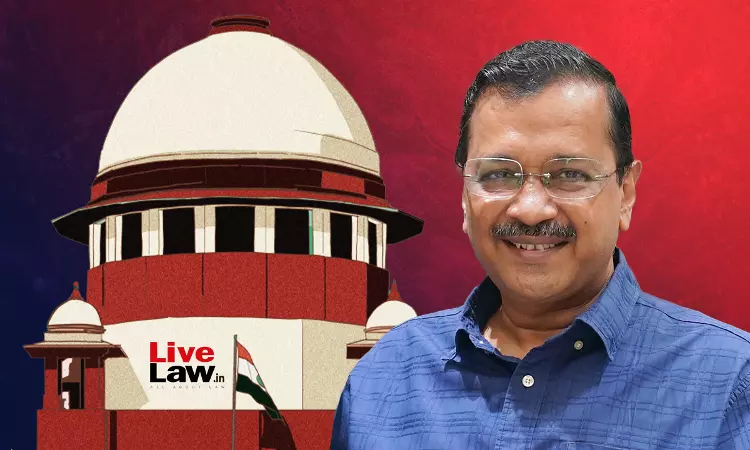Supreme Court Grants Interim Bail To Arvind Kejriwal In PMLA Case; Refers Plea Challenging ED Arrest To Larger Bench
Debby Jain
12 July 2024 10:42 AM IST

Next Story
12 July 2024 10:42 AM IST
In a significant development, the Supreme Court on Friday (July 12) granted interim bail to Delhi Chief Minister Arvind Kejriwal in the case registered under the Prevention of Money Laundering Act (PMLA) over the alleged liquor policy scam, while referring his petition challenging the arrest by the Enforcement Directorate (ED) to a larger bench.A bench comprising Justices Sanjiv Khanna...
